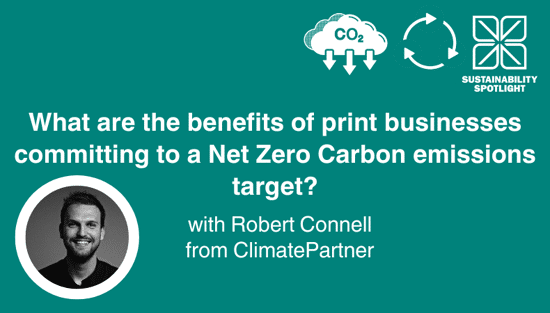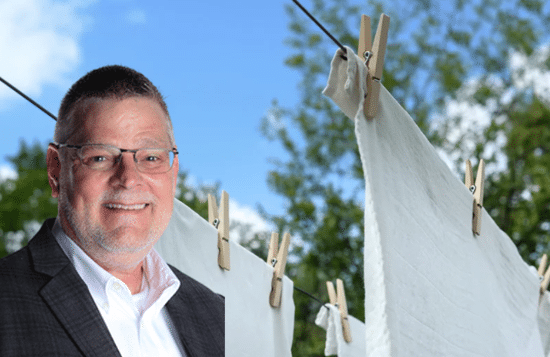What are the environmental benefits of remote support?

Laurel Brunner shares the various environmental benefits of remote support which include less waste, less halts to automated productions, reduced costs and more.
Automation has been a buzzword in the graphics business for many years. Automated preflight checking, colour management you name it software has it covered. We’ve talked about it a lot, but we haven’t given much attention to the importance of automation in remote hardware support.
This goes beyond automatic software updates, to include remote monitoring of equipment. Printers who are thinking about investing in new kit and want to improve their environmental sustainability should understand the impact remote support can have on their costs, efficiency and carbon footprint.
Remote support is a way of monitoring equipment so that performance can be evaluated in real time and potential failures anticipated. Ideally errors can be corrected before anything terrible happens. The idea with this technology is that it is implemented all the time in the background. Providers offer different options in their service packages, from 24/7 to a few hours a week and different levels of complexity, including video monitoring.
With remote access software and sensors, performance in a piece of hardware such as a platesetter or press is constantly measured. The data is compared with known data so that the risk of failure of the device can be calculated and preventative actions taken. This is an ideal application for artificial intelligence, but for the most part suppliers used good old fashioned statistics.
Provision of this service is enormously varied. The most basic is as a supplement to telephone support, which is what Heidelberg offers. Kodak’s remote support system is a complete infrastructure that includes its Prinergy workflow system and an app for monitoring devices. Some systems combine telephone support and remote device access, as is the case with Ricoh and Canon.
The range of options is huge which is why any conversation with existing or potential suppliers should include discussion of remote support options and the cost structure. Savings in onsite visits can be considerable not just in terms of money. Konica Minolta estimates that its AIRe Link software saved 8900 on site visits amounting to 310,740 kilometres and 140 tonnes of greenhouse gases in Europe as of January 2023. The company doesn’t provide details of how these calculations are made however.
The environmental benefits of remote support are clear: reduced transportation for customer services, less waste because machine failures can be fixed before they happen, and fewer halts to automated production. More interesting for most print service providers is the potential for cost savings and the reduced risk of machine halts and of disgruntled customers whose jobs are delayed. Another benefit of the online world that can benefit printers.
Recent news

What are the benefits of print businesses committing to a Net Zero Carbon emissions target?
We speak to Robert Connell, Senior Commercial Sustainability Manager at ClimatePartner who who offer solutions along the net zero cycle to support business’s effort in corporate climate action. In this discussion we discuss the importance and the process and benefits of businesses committing to a Net Zero Carbon emissions target.

6 Sustainable Printing Practices Changing the Game in Textile and Apparel Decoration
The textile industry is shifting towards sustainability. Innovations like waterless and digital printing, eco-friendly inks, and recycled materials are reducing waste. AI and automation optimise production, while circular models promote reuse. Consumer demand for transparency drives this change, making sustainable practices essential for future-focused brands.

Sustainability in Production Print: Advancing Practices in Wide Format, Textiles, and Software
As sustainability continues to take centerstage across industries, the production print sector is making massive strides in integrating eco-conscious practices. From wide format to textile applications, with the growing reliance on advanced production software, the space is evolving to meet environmental goals as well as consumer demand for sustainable products.

Why must the print industry recognise software and material innovation
Laurel Brunner argues that the printing industry must recognise the value of both software and material innovation, and be willing to pay for it. Software, though intangible, drives efficiency and reduces carbon footprints. While materials science currently dominates, R&D costs are inherent in all advancements. Paying a premium ensures continued progress, benefiting the industry's evolution and sustainability.